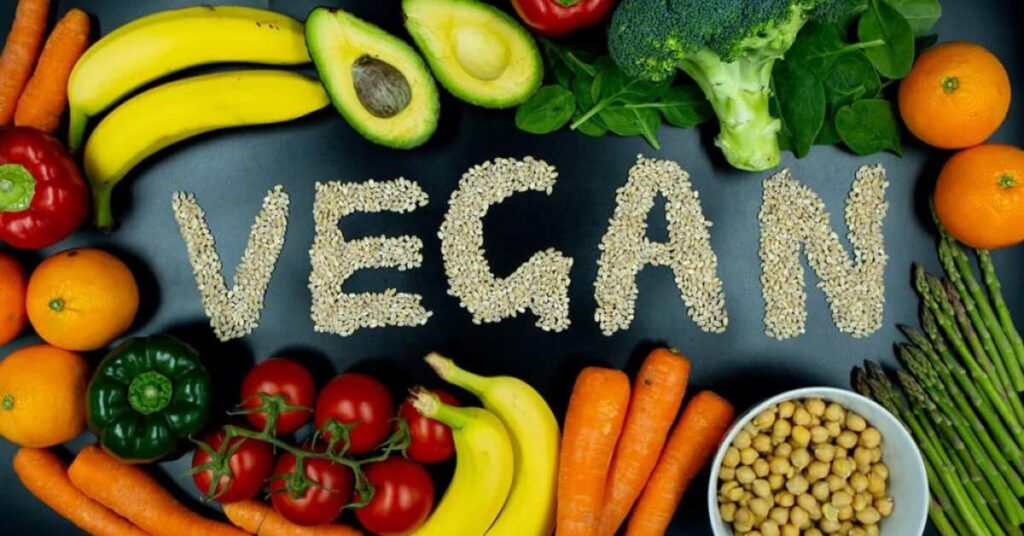Contents
What Is Vegan Diet?
A vegan diet consists of food products abstracted from plants only. A vegan diet completely excludes foods from an animal. Even common food items like eggs, cheese, milk, and honey are off-limit. Many people all over the world follow a vegan diet for various reasons.
Some go vegan for health reasons, as it improves the health of a person and protects them from chronic diseases like cancer, diabetes, blood pressure, and aid weight loss, etc.
Some people choose to go vegan for animal welfare and environmental concerns. Numerous countries promote a vegan diet. For example, about 3% of American follows Vegan diet. In a country like India, where 20-40 % population is vegetarian, the number of vegan followers is less. However, India has a wide variety of vegan foods including vegetables and herbs.
Although the vegan diet has become very popular, it is important to know that it deducts some nutrients. To include essential nutrients in the diet, vegans have to be more careful with the food items they are eating.

Types of Vegan Diet
There are various types of vegan diets according to the food items they include. The most common type of vegan diet is following:
- Whole food vegan Diet: This type of vegan diet includes whole plant foods. It Is based on whole grains, nuts, legumes, fruits, and vegetables.
- Raw-food vegan Diet: This type of vegan diet includes a wide variety of raw foods. For example, foods like raw fruits, vegetables, seeds, and plant foods are cooked at a temperature less than 48-degree Celsius.
- 80/10/10 Diet: The 80/10/10 diet is also called a low-fat, raw-food vegan diet or fruitarian diet. This raw food diet mainly depends on raw fruits and soft greens. Fat-rich plant products like nuts and avocados are put off-limits. This diet follows the idea that 80% of calories should be consumed through carbs and not more than 10% from protein and fats each. Therefore, called the 80/10/10 diet.
- Starch Solution Diet: In a starch solution diet, the person needs to follow low-fat, high-carb foods. This diet is similar to the 80/10/10 diet. Except that it focuses on cooked starch like potatoes, rice, and corn. Unlike raw food diet that mainly includes fruits.
- Thrive Diet: The thrive diet is another raw-food vegan diet. In this diet, a person can eat plant-based, whole foods that are raw or minimally cooked at low temperatures.
- Junk-food Vegan Diet: As the name suggests, this diet mainly contains heavily processed vegan foods like mock meats, cheese, fries, vegan desserts. This diet lacks whole plant foods.
There are several ways to follow a vegan diet, but scientific research rarely differentiates between the different types.
Foods You Can Eat In Vegan Diet
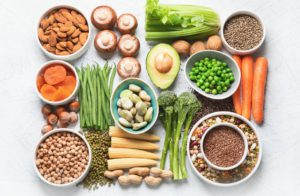
In a vegan diet, animal products are swapped with plant-based foods. The food items vegan can eat are-
- Fruits and vegetables: Both are a great way to include essential nutrients in the diet. Fruits and vegetables are rich sources of vitamins and minerals, and other nutrients that can not be found in other food items. Leafy greens vegetables like spinach, kale, Bok choy, and mustard greens are high in iron and calcium.
- Whole grains, Cereals, and Pseudocereals: These are foods that contain complex carbs. And complex carbs digest slowly, making you feel full for longer. These foods improve blood sugar levels and also opposes weight gain. Spelled, teff, amaranth, and quinoa are high protein foods containing, fiber, iron, B-vitamins, and several minerals.
- Sprouted and fermented plant foods: Sprouted and fermented foods can help improve mineral absorption in the body. Ezekiel bread, tempeh, miso, pickles, sprouting comes under this category.
- Legumes: Food items such as lentils, beans, and peas are a great way to include many nutrients and beneficial plant compounds.
- Nuts and Seeds: Seeds containing a good amount of omega-3 fatty acids and protein are significantly good for health. Hemp, chia seeds, flax seeds are good sources. Raw nuts, without blanching and roasting, are a good source of iron, magnesium, zinc, selenium, and vitamin E.
- Other foods: Other foods could be a good replacement for animal protein like tofu, tempeh, seitan, spirulina and chlorella algae, and yeast.
Foods To Avoid In Vegan Diet
As mentioned earlier vegans do not eat food derived from animals. Vegan followers avoid eating animal flesh, animal by-products, or food containing any animal ingredient. These could be:
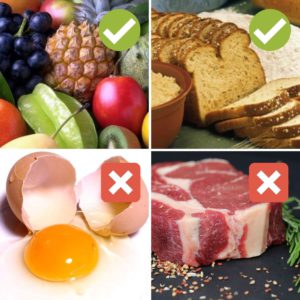
- Meat and poultry
- Fish and seafood
- Dairy products
- Eggs
- Bee products
- Animal-based Ingredients
Are Vegan And Vegetarianism The Same Thing?
No. The Vegan diet and vegetarian diet have some similar features like both do not include animal meat or flesh. But a vegan diet is stricter and does not include any product like milk, honey, eggs, or any food item derived from animals. Both of these diets mainly focus on plant-based food especially vegan.
Vegan people try to avoid any product that directly or indirectly is made up of animals like, silk, wool, and leather. Veganism is a way of stopping cruelty to animals for food, clothing, and other purposes.
However, vegans have to find a way to get the nutrients that vegetarians get from dairy products, eggs, etc. Nutrients like calcium, phosphorus, and vitamin D need to be taken from other sources.
Benefits of Vegans
Vegans can provide all of the nutrients that are required for good health. Plant foods included in vegan diets are rich in many nutrients such as vitamin A, C, E, and K, fiber, antioxidants, and phytonutrients. A vegan diet also excludes unhealthy compounds from the diet. It can lower the risk of some chronic ailments.
It has been proven that people who follow a vegan diet are at a lower risk of developing certain diseases because it promotes healthy eight, improved blood sugar, and cholesterol levels. Vegans also provide better health in women with better BMI.
Lower Risk of Type 2 Diabetes
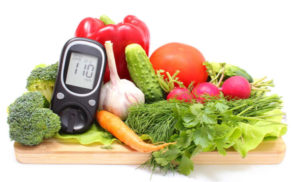
You can keep type 2 diabetes and unstable blood sugar level at bay if you adopt the vegan diet. Some researches reveal that consuming plant food like vegetables, whole fruits, and whole grains can help diabetics in improving blood sugar levels. Because these foods contain fibers and other nutrients which are beneficial for diabetics.
Furthermore, a vegan diet helps in lowering the risk of diabetes complications like heart diseases, diabetic retinopathy, and nerve damage. Vegans also benefit from higher insulin sensitivity and have a 78% lower risk of developing type 2 diabetes.
Promotes Heart health
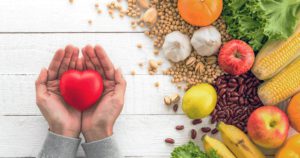 A vegan diet can improve heart health in various ways. According to studies, eating foods that contain saturated fats raises cholesterol levels.
A vegan diet can improve heart health in various ways. According to studies, eating foods that contain saturated fats raises cholesterol levels.
Increased cholesterol levels lead to several heart diseases. Animal products like meat, cheese, and butter are the main sources of saturated fats.
Therefore, avoiding animal protein and adopting a vegan diet can reduce the risk of heart attack and other heart ailments.
A large-scale study said that vegans may have around 75% lower risk of getting blood pressure problems and a 42% lower risk of dying from heart diseases. These benefits could be because of low blood sugar, LDL, and total cholesterol.
In addition, people who are following a vegan diet consume fewer calories in comparison to non-vegan. That’s because vegan foods have a higher fiber amount. Fibers stay in the stomach for a longer period thus making us feel full. Due to this, the person consumes fewer calories and the risk of obesity is quite low. Obesity is one of the main reasons for heart diseases, and vegans have less risk of it.
Lower Cancer Risk
Studies reveal that vegans have a 15% lower risk of getting cancer or dying from cancer. This may be because vegans do not eat meats. The International Agency for Research on Cancer reports that red meat is “probably carcinogenic”, therefore people who eat meat regularly are more at risk of developing cancer. Eliminating red and processed meat from the diet can be beneficial for the health.
Including plant-based foods that are rich in fiber, vitamins, and phytochemicals in the diet can protect a person from cancer. It has also been proved that vegans are less likely to get some types of cancer like cancers of the GI tract, and the cancers of ovaries, breast, and uterus in women. Going vegan may help a person live longer and without any chronic diseases.
Helps In Weight Loss
 Many people follow a vegan diet to have a trimmer waist and a good physique. No doubt that a vegan diet is really helpful in reducing weight. People on a vegan diet are seen to have a lower body mass index BMI than non-vegans.
Many people follow a vegan diet to have a trimmer waist and a good physique. No doubt that a vegan diet is really helpful in reducing weight. People on a vegan diet are seen to have a lower body mass index BMI than non-vegans.
The researchers report that vegan diets are more effective in losing weight, so many people suffering from obesity, diabetes, and heart diseases choose to go vegan.
This could be because vegans abstract from animal proteins which are the main source of fat and calories. When vegans eat plant-based food, it can help people manage their blood pressure and blood sugar levels. Although, eating a lot of processed or high-fat foods can lead to some weight gain. That is why it is important to focus on the calories being consumed.
Risks of Vegan Diet
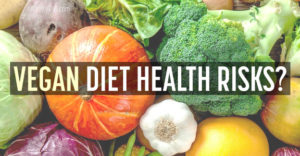
A vegan diet surely is healthy but there are some drawbacks to it too. Vegans can develop some micronutrient deficiencies if they are not eating a variety of foods. Some nutrients need to be substituted from dairy products and eggs, such as-
Calcium– Milk is the main source of calcium, but for vegans, it can be replaced by soy milk, fortified orange juice, broccoli, kale, and almonds.
Omega-3 fatty acids– flaxseeds, vegetable oils are a good source of omega-3 for vegans.
Vitamin B12– This is one of the nutrients that is impossible to get from plants. So, the vegans need to get a supplement to make up for what they don’t from your diet.
A vegan should get enough protein, calcium, omega-3 fatty acids, zinc, and vitamin B12 for the proper function of the body. These all are important to power all the chemical reactions in your body.
How To Go Vegan?
If you are thinking of going vegan, it may seem difficult to begin but you can start slowly. Transitioning to a vegan lifestyle includes cutting all animal-derived ingredients and incorporate plant-based foods like whole grains, beans, fruits, and vegetables.
This diet will help in maintaining health, and additionally, veganism is not expensive either. Especially in a country like India, where there are a plethora of vegetables which are the cheapest ingredients on earth.
If you are a non-vegetarian, it could be quite difficult to cut all the animal products. So, you can find try a less strict approach. There are other types of diets in vegan that leaves room for other foods than fruits and vegetables. For example:
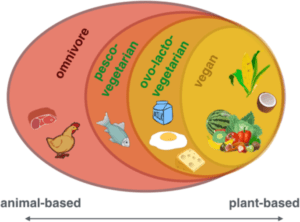
- Pescatarian: no meat and poultry, but you can still eat fish
- Lacto-Ovo vegetarian: plant-based diet, plus dairy and eggs
- Flexitarian: a plant-based diet that on occasion includes animal products.
If you have any health problems, it is best to consult a doctor or dietician to discuss the type of food that will suit you.
A Word From Mantra Care
For more information on healthy and nutritious foods, you can contact Mantra Care. We can help you develop a healthy weight management program that is tailored to your specific needs and goals. You can also consult with a registered dietitian or nutritionist through our online nutrition counseling if you have any questions or concerns about starting a new diet.
